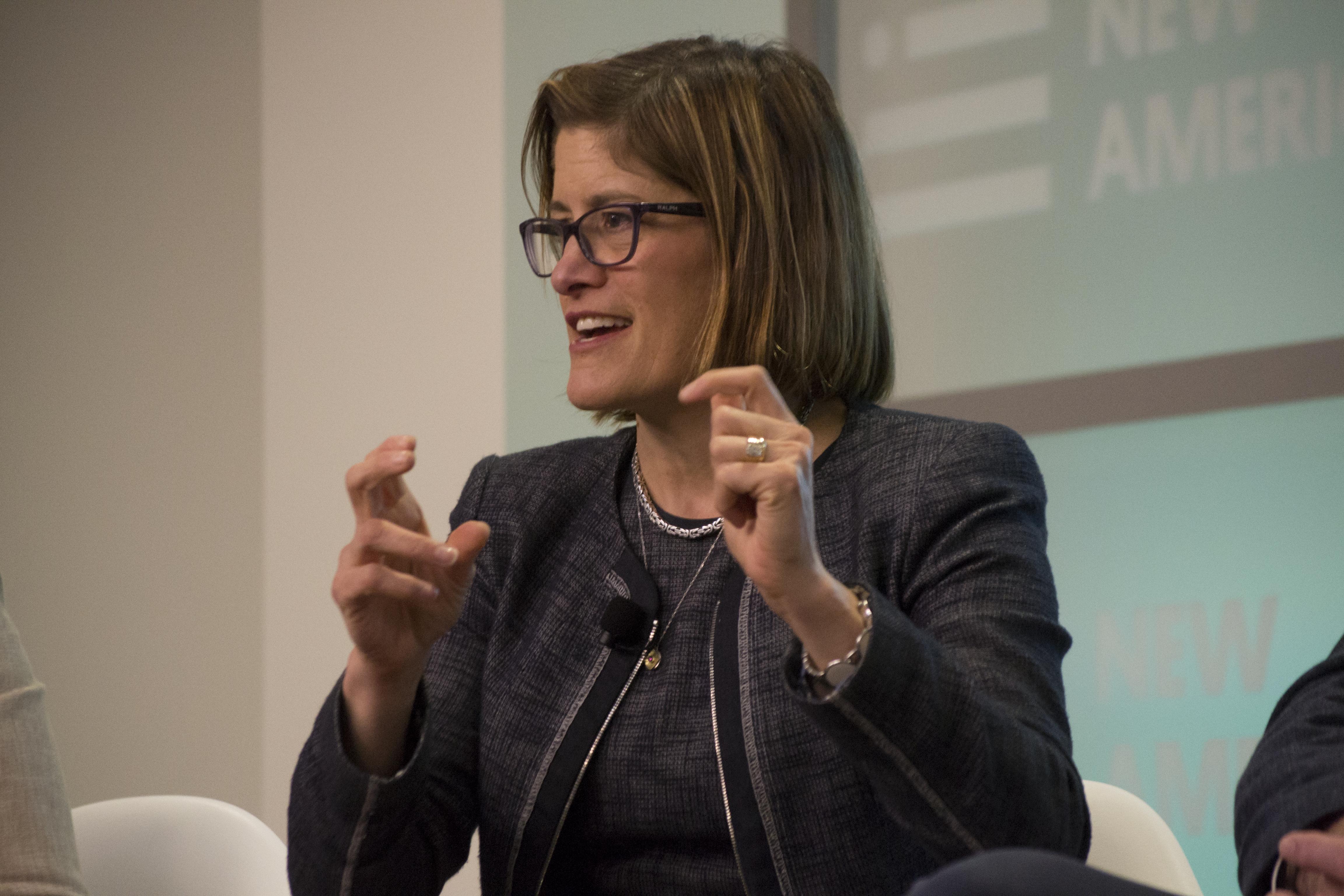How a Focus on Skills, Not Background, Can Future-Proof Houston’s Workforce
Published Jun 19, 2019 by Peter Beard
Lasting changes in job skill needs, expansion of technology in work and learning, and increasing mobility of companies and workers are among the critical trends affecting the development of our regional and national workforce.
Beth Cobert, CEO of Skillful, participated in a Q&A ahead of her appearance during the UpSkill Houston's 2019 UpSkill Works Conference, where she discussed the increasing role of technology and automation in the workplace. Skillful is a non-profit initiative of the Markle Foundation, and is developing skills-based training and employment practices in collaboration with state governments, local employers, educators and workforce development organizations.
What are the differences between a skills-based labor market and a credentials-based labor market?
A skills-based labor market is one in which the entire workforce system, including workers, employers, and educators, share a common language around skills. In a skills-based labor market, workers know how to clearly express their skills, no matter where they were obtained. Employers can determine exactly what skills they need and attract and hire the people most likely to flourish in a given position. And educators and training providers can tailor their curricula with a focus on skills to better fit the labor market’s demands.
Credentials are an important element of helping workers communicate the skills they have in a way that can provide clarity around the skills a person has. They can also help workers and companies build and communicate skills in targeted ways that will be needed as the economy continues its rapid pace of change. Educators and training providers are, and will continue to be, enormously powerful as we look to help workers become lifelong learners, a necessity in today and tomorrow’s labor market.
Can you share one of your success stories?
Sure—we have lots of stories of people whom Skillful and our partners have helped connect to a better career or employers who have found new sources of great talent by adopting skills-based practices. As one example, after working with Skillful, a call center and customer service center run by the state of Colorado changed its talent management processes to focus on skills rather than prior experience. The director of this division reported that this new, skills-based approach helped her department decrease her vacancy rate from 35 percent to under 10 percent and that abandonment rates have fallen from 60 percent to less than eight percent. And all these changes took place over a short six-month period. What stuck out to me when hearing her story was that the quality of the services improved. Skills-based practices helped her and her department get there. She also highlighted how these new processes have improved morale; by creating career paths that explicitly tie skills to pay raises, employees are “more invested and engaged in their work” and now have more opportunities for advancement.
For us, that’s what success looks like: connecting people to rewarding work for which they might not have been considered and providing them with career paths to help them remain competitive in today’s changing economy.
What opportunity do you see in Greater Houston’s own efforts to address our workforce challenges?
The Greater Houston Partnership’s approach is parallel to ours in that it encourages cross-sector collaboration, a strong spirit of partnership, and works at broadening people’s narrow definitions of what a “good” job entails.
For instance, their campaign “My Life As” helps students and their parents understand the many career options available that don’t necessarily follow what you might consider a “traditional” career path. This work is perhaps the most important: changing the narrative. Opportunities are rampant and can be found in many places; the key is to realize how to take advantage of them.
Watch a recording of the fireside chat between Cobert and Dan Gilbane, Gilbane Building Company senior vice president and director of strategic initiatives, from the conference here. Read coverage of the conference from the Houston Chronicle and Construction Citizen.
Learn more about the UpSkill Houston initiative here.
 The Houston Report
The Houston Report





















